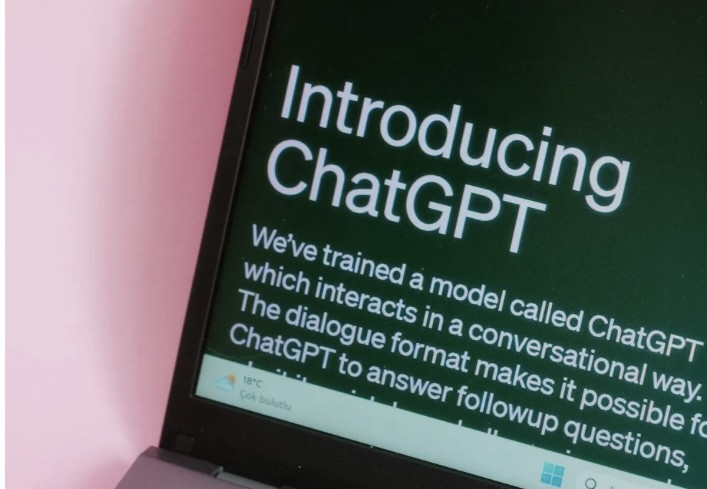AI Is Not Just Out To Get Your Jobs - It Can Replace Your Therapist Too: Is It Safe for Mental Health?
The Truth Behind AI's Growing Role in Mental Health Support

Artificial intelligence tools are no longer just changing the way we work – they're quietly stepping into the world of mental health too.
Promoted as a fast, affordable alternative to traditional therapy, these chatbots offer round-the-clock support, instant replies, and judgement-free anonymity at a fraction of the cost of professional sessions.
But while AI tools like ChatGPT are increasingly seen as a quick, inexpensive alternative to traditional therapy, experts are now questioning whether AI can truly deliver the care and emotional insight that real therapists provide – or whether it's simply a high-tech shortcut with serious risks.
While dedicated AI therapy apps such as Woebot and Wysa have been around longer, ChatGPT's popularity has grown as a casual, on-demand alternative. Many start chatting about minor concerns, only to find themselves discussing deeper issues. Experts note that this organic use of AI reflects a broader shift: more individuals are willing to seek emotional support through technology before approaching a professional.
How AI Can Help – and Where it Shines
AI therapy has clear advantages in terms of availability and affordability. Chatbots can guide users through mindfulness exercises and basic coping strategies, especially those rooted in cognitive behavioural therapy. A 2024 study involving 3,477 participants found that AI chatbots had a positive effect on depression and anxiety after just eight weeks. Similarly, a 2023 review of 35 studies confirmed that conversational agents can reduce symptoms of emotional distress.
In many cases, AI is best seen as a supportive tool rather than a standalone solution. Its ability to provide immediate, non-judgemental responses makes it a useful starting point, encouraging people to explore their feelings without fear of criticism. However, experts warn that AI lacks the emotional intelligence required for effective therapy, which involves recognising subtle cues and adapting in real-time.
Limitations and Risks of ChatGPT as a Therapist
Despite its potential, AI's shortcomings are significant. It does not possess the understanding, empathy, or intuition that a trained therapist brings. Responses are generated based on patterns in large data sets, not personal experience or emotional insight. This means that AI can sometimes mirror users' negative thoughts, potentially reinforcing harmful beliefs instead of challenging them.
Moreover, AI can produce false or misleading information, a phenomenon known as hallucination. While there are no reported cases of ChatGPT directly causing harm, there have been instances involving AI-powered chatbots linked to suicide. Such cases highlight the danger of relying solely on AI for emotional support, especially in crisis situations.
Privacy is another concern. Unlike therapists bound by strict confidentiality rules, AI platforms often store and process user data. This raises questions about how safely personal information is handled, especially given the sensitive nature of mental health discussions. Experts advise caution when sharing personal details with AI chatbots.
The Danger of Over Dependence
Many users claim that ChatGPT has helped them more than years of therapy, especially because of its convenience and low cost. Anecdotes abound on social media, with some saying they've made more progress in weeks than in years of traditional treatment. For some, AI feels like a safe space that doesn't judge or project.
However, mental health professionals caution against relying too heavily on AI. Alyssa Petersel, a licensed clinical social worker, suggests AI can be helpful when used alongside traditional therapy, but not as a replacement. Overdependence might weaken a person's ability to handle problems independently, especially in stressful or urgent situations.
Research from the University of Toronto indicates that AI can sometimes provide more consistent responses than overworked professionals, since it does not suffer from fatigue. Still, it cannot replace the nuanced understanding of a human therapist, who can interpret body language and emotional cues more effectively.
The Ethical and Safety Concerns
There are serious concerns about misinformation and safety. AI chatbots can sometimes give harmful advice or reinforce stereotypes. Cases have emerged where AI platforms have been linked to dangerous outcomes, including a lawsuit in Florida which involved a mother claiming that her son's interaction with an AI chatbot contributed to his death.
Diagnosing mental health conditions is also a complex process requiring years of training and experience. Experts warn that AI cannot reliably identify or treat conditions, and misdiagnoses could be harmful. Relying on AI for diagnoses risks overlooking subtle signs that only a trained professional can detect.
While ChatGPT and similar AI tools offer a new way to access mental health support, they are no substitute for qualified professionals. They can be helpful in promoting self-reflection, practising coping skills, or bridging gaps when professional help is unavailable. However, they should be seen as an addition, not a replacement, to human therapy.
As the technology develops, it's crucial to approach AI in mental health with caution. The safest route remains a blend: using AI as a stepping stone, but always seeking the guidance of trained therapists when serious issues arise.
© Copyright IBTimes 2025. All rights reserved.





















